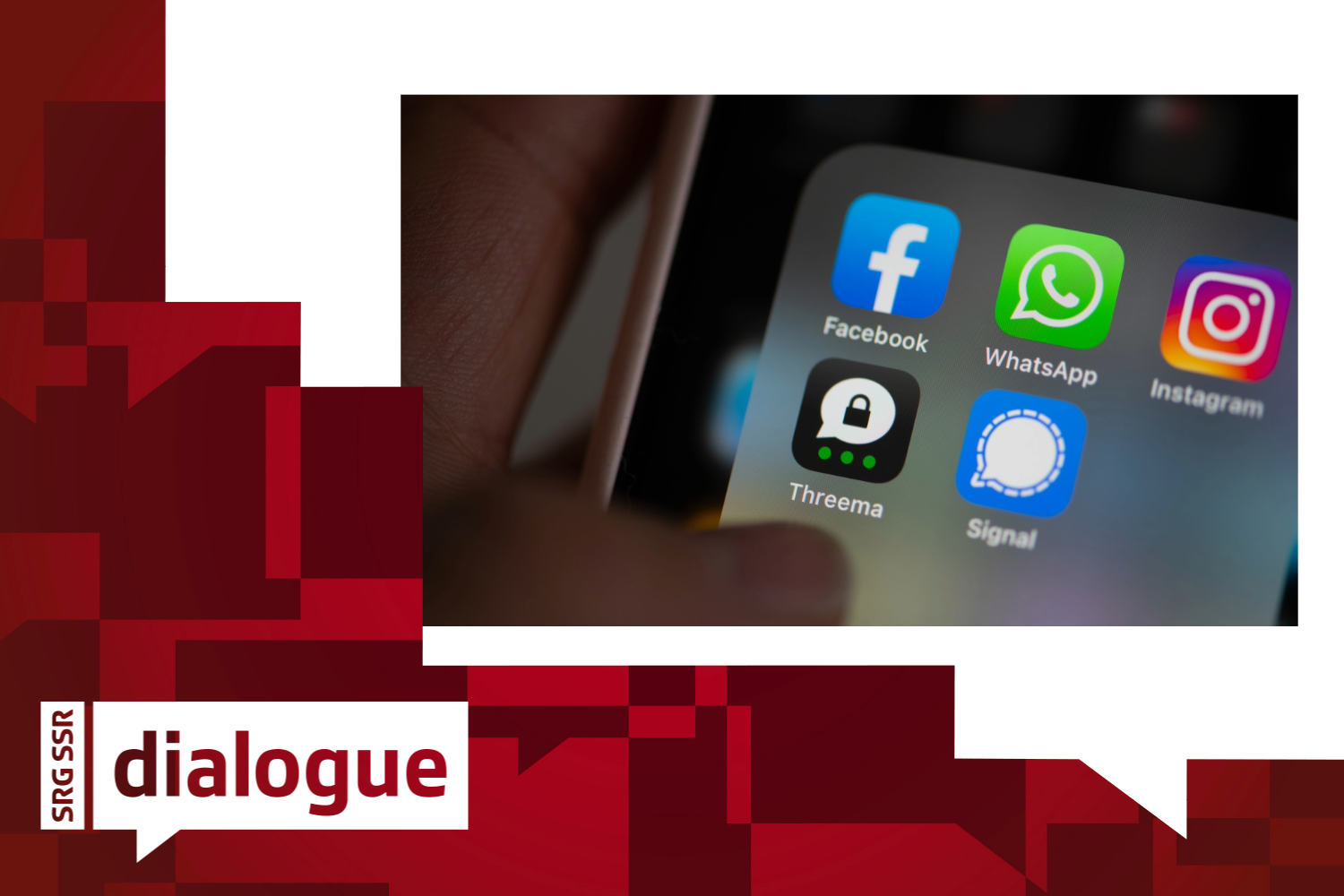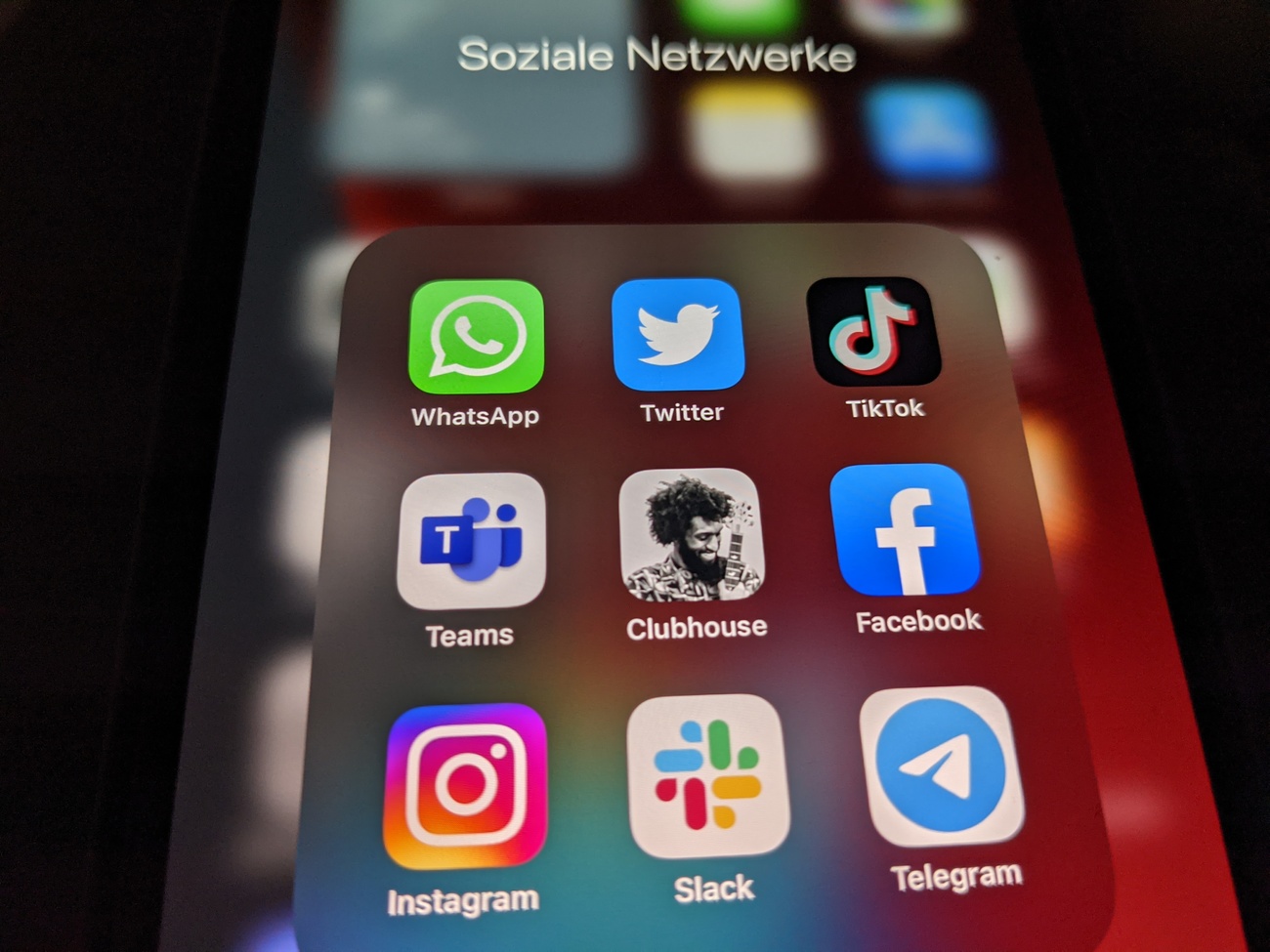Three-quarters of Swiss use ‘divisive’ social media daily

Harvard University, February 4, 2004. The address "thefacebook.com" was created. Two decades later, Facebook, which has become the first globally known social network and was recently renamed Meta, celebrates its 20th birthday. An anniversary that offers the opportunity to look at the relationship between the Swiss and social media.
SixDegrees.com in 1997, MSN and Blogger in 1999, MySpace and Friendster in 2002: the entry into the third millennium cannot be summed up in the “Y2K bug”, quite the contrary. This pivotal moment mainly saw the emergence of social networks. In 2004, Facebook acted as a catalyst for this nascent digital revolution, globally accelerating the transformation of our online – and sometimes offline – socialising practices.
Today, Instagram, Snapchat, WhatsApp, X, LinkedIn, YouTube, TikTok, Twitch – to name the most well-known – are omnipresent in the lives of a clear majority of the Swiss. According to the results of a survey by the Swiss Broadcasting Corporation (SBC), SWI swissinfo.ch’s parent company, which was conducted among 57,000 people in April 2023, 75% of respondents say they use social networks at least once a day. Only 5% of Swiss say they never use these platforms.
Women use social media much more often than men (71% of women say “several times a day”, compared to 62% of men). Young people are also much more likely to use the platforms than older people (81% of 16- to 39-year-olds respond “several times a day”, compared to 47% of those over 65). And looking at the language regions, 81% of French speakers and 80% of Italian speakers use social media at least once a day. In German-speaking Switzerland this number drops to 76% and in Romansh-speaking Switzerland to 64%.
The smartphone, the Trojan horse in your pocket
This (r)evolution has been fuelled by the rise of smartphones – the first iPhone was sold in 2007 – and their mobile applications, making the internet and social networks accessible at all times and almost everywhere.
In Switzerland, the device most used to access the internet today is the smartphone. Nine out of ten people surveyed use it several times a day. Among the younger respondents (aged 16-39), this percentage rises to 96%. Half of the people surveyed in this age group declare being “almost constantly” online via their mobile phones, women more so than men.
Has social media enriched your life?
For Michael Latzer, a professor specialising in communication and media at the University of Zurich, the results of this survey “emphasise the high importance – even dependence – of the Swiss on these digital services, used as a daily routine or ritual”.
But despite this intensive use of social media in everyday life – notably via smartphones – the Swiss are quite critical of the platforms.
Only a minority believe that social media has enriched their lives (4% completely agree, 30% somewhat agree). This perception is also shared by the younger respondents.
Furthermore, 17% of the people surveyed consider themselves dependent on social media (2% completely agree, 15% somewhat agree). Among younger people (aged 16-39), the percentage rises to nearly a third (4% completely agree, 28% somewhat agree).
Staying away, protecting the children, and remaining critical
Almost all respondents believe that people should start interacting directly with each other again (92% somewhat or completely agree). Women agree more strongly with this view than men (65% completely agree compared to 54%) and older people more than young people (70% compared to 52%).
The idea of keeping children away from social media for as long as possible is also clearly supported (69% somewhat or completely agree). This belief is more widespread among women than among men (75% somewhat or completely agree compared to 64%).
A clear majority of respondents believe that people form their opinions based on increasingly biased information and that social media is dividing our society (82% and 71% somewhat or completely agree).
Furthermore, according to Michael Latzer, the dangers of social networks and the internet tend to be “perceived more for others than for oneself”. This is the “third-person effect”. This cognitive bias leads us to overestimate the influence of media messages on others while underestimating their influence on ourselves.
Adapted from French by Claire Micallef

In compliance with the JTI standards
More: SWI swissinfo.ch certified by the Journalism Trust Initiative






You can find an overview of ongoing debates with our journalists here . Please join us!
If you want to start a conversation about a topic raised in this article or want to report factual errors, email us at english@swissinfo.ch.